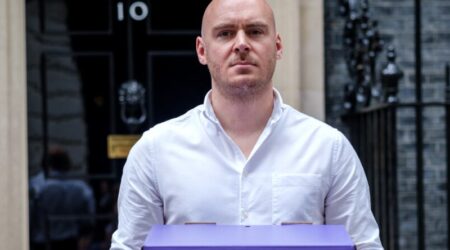We’re excited to be supporting the Rare Cancers Bill, a new potential law, which is due to be debated in the House of Commons this March.
Dr Scott Arthur, a Labour MP, has brought this legislation forward in Parliament to drive desperately needed research into cancers that affect fewer than 1 in 2000 people in the UK.
Half of people diagnosed with pancreatic cancer in the UK today die within three months. We believe this Bill has the potential to improve survival rates for pancreatic cancers and other cancers that have been left behind.
Ask your MP to back the Bill
How the Bill came about:
The Bill has been proposed by Dr Scott Arthur MP (Edinburgh South West), whose father-in-law, Ivor Hutchison died of glioblastoma, a type of brain cancer, and one of the less survivable cancers, in May 2018. Ivor died just six months after he was diagnosed.
We have long campaigned with our supporters for more investment in research for pancreatic cancer and the less survivable cancers. And after our General Election campaign, two political parties pledged to bring forward legislation on research.
Now, we’re proud to be working closely with Dr Scott Arthur MP, The Brain Tumour Charity, and other coalitions working on less survivable and rare cancers, to turn all this momentum into real change. We’re uniting to ask MPs to support this Bill through Parliament so that it becomes law.
Dr Scott Arthur was able to put this forward as a Private Members’ Bill. These are proposed laws introduced by MPs who aren’t government ministers. While they’re a vital way for MPs to raise important issues and change the law, these Bills face significant hurdles.
Private Members’ Bills can only be debated on certain Fridays, and they need at least 100 MPs to be present for a vote to happen at Second Reading – the crucial first debate of the Bill in the Commons. Without enough MPs attending, the Bill could fail at this early stage, which is why it’s so important that as many MPs as possible attend the debate on March 14th to show their support and help this vital legislation move forward.






